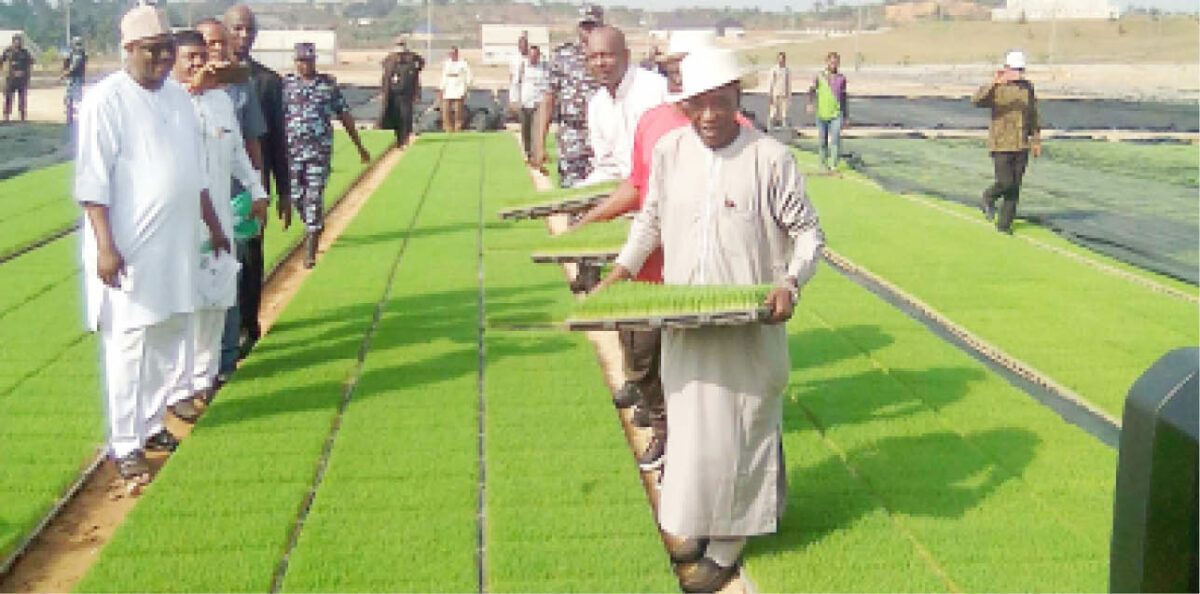Due to the high cost of rice, private entrepreneurs and smallholder rice farmers in Cross River State are now smiling to the bank as demand for “local” rice spikes.
Compared with the imported or smuggled (foreign) rice, local rice is cheaper and has also been discovered to be reasonably nutritious. A bag of imported rice in Calabar goes for between N29,000 and N31,000, whereas a bag of local rice goes for between N25,000 and N26,000.
- We’re Reinventing Northern Nigeria’s Rich Heritage- Director, Arewa House
- Nigeria Lacks Enough Personnel To Guarantee Security – Akinyemi
Owing to these factors, households, hotels and restaurant owners now go for the local rice.
Mr. Emmanuel Unah, a rice farmer in Yala LGA, said entrepreneurs and small time farmers were taking advantage of the situation and had upped their packaging: bagging and branding, to attract greater patronage.
More than eight local government areas in the state are predominantly rice producers. They include Ogoja, Yala, Bekwara, Abi, Ikom and Obudu.
Farmers in the state have encouraged the Federal Government to permanently keep the borders closed so that Nigerian processed rice can also be made popular and its acceptability among the people sustained.
Another big time rice farmer in the state, Mr. Fidelis Momfem, said he had many hectares of rice farm, and that the quantity of rice produced in the state could satisfy a large part of the country.
Mr. Momfem said because of the good price of rice in the market, many small holder farmers have now embraced rice farming in the state.
The farmers have formed themselves into cooperatives to back up what the state government is doing in this direction.
Gov. Ben Ayade had exerted his political will to ensure that the state became a leading producer and supplier of vitaminised rice not only in the state but throughout the country.
Towards this, the state government set up the Rice Seeds and Seedlings Factory, the Ultra-Modern Vitaminised Rice Mill, Ogoja, as well as Cala-Noodles – rice is the main raw material.
The government provided tractors and machinery for land clearing and development and trained the first set of 1,000 rice farmers on improved technology for rice cultivation at an Israeli training centre. Ultimately, they are looking at training no fewer than 50,000 interested rice farmers before the end of his tenure.
The state is also developing a strong and effective monitoring system to ensure the application of right inputs by the farmers. And to enable the rice revolution to succeed, the government has developed a system for aggregation and offtake mechanism.
In order that those trained do not waste their knowledge, a system has been developed that ensures cultivation of rice at least twice in a year, said the Commissioner for Agriculture, Okon Onwuna.
Meanwhile, the Rice Multiplication Factory and Laboratory in the Ayade Industrial Park, Calabar, has started to receive orders from state governments and organisations in Nigeria. The automated rice factory, which was commissioned about two years ago by President Muhammadu Buhari, has capacity to churn out a lot of rice to meet demand.

 Join Daily Trust WhatsApp Community For Quick Access To News and Happenings Around You.
Join Daily Trust WhatsApp Community For Quick Access To News and Happenings Around You.



